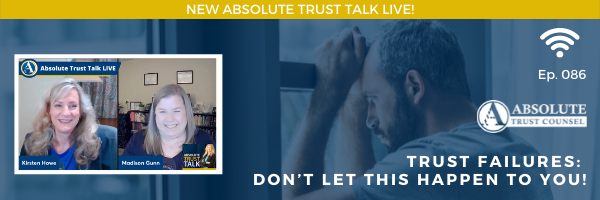Documents to Review After Divorce or in Anticipation of Divorce
Going through a divorce can be emotional and overwhelming. However, if you are recently divorced or are considering a divorce, do not forget to review your estate plan to determine if you need to make changes to ensure your estate is protected from an ex-spouse and the plan reflects your wishes.
The documents you should pay special attention to after or in anticipation of divorce are your:
- Will
So long as a divorce is final, your ex-spouse is automatically barred from inheriting your property or serving as executor of your estate under California law. This means you will either need to make sure you have named beneficiaries and a successor executor who is not your ex-spouse in your will or will need to revoke your will and prepare a new one. California courts have ruled that unless a will contains specific language, a divorce will also revoke any provisions in your will pertaining to the children of your former spouse. If you want to include stepchildren as beneficiaries, it’s a good idea to update your estate documents to specifically spell out your intentions to include or disinherit your ex-spouse and any stepchildren. If you have children from your marriage and have full or shared custody, you will also want to review the guardianship provision of your will. - Trusts
Trusts and divorce can be tricky. If you have a revocable trust, you can revoke it before you file for divorce or after the divorce is finalized. However, in California, you cannot revoke or change an existing trust or fund a new one once divorce proceedings have been initiated. Revoking a trust will not remove the community property subject to division upon divorce but you can at least protect your half of community property and your separate property by voiding your trust if you named your spouse beneficiary of these assets. Irrevocable trusts are harder to change, even in the event of a divorce. If you have an irrevocable trust and are going through a divorce, contact an attorney. - Retirement Plans
In California, IRA beneficiaries cannot be changed without your spouse’s consent. If your spouse will not consent to a change prior to a final order of divorce, you should change the beneficiary of any retirement plans immediately once your divorce is finalized. If you neglect to do so after your divorce, the beneficiary designations will apply and an ex-spouse may receive the entire plan despite the divorce. - Non-Probate Assets & Power of Attorney Documents
California follows the community property system of property distribution upon divorce. This means that when spouses divorce in California, they divide property acquired during the marriage equally with each spouse retaining separate property acquired before marriage. Non-probate assets are those assets that pass to your spouse by contract or by some means other than your will, such as a retirement plan. California law severs some of these rights in the event of divorce. The terms of payable-on-death accounts are terminated when you divorce if your spouse is named as the survivor, and if you hold real estate as joint tenants with rights of survivorship, your divorce extinguishes the survivorship rights. You will also want to update your Power of Attorney document by naming a new agent to make medical decisions and manage your assets in case you become incapacitated.
If you have recently gone through a divorce or are considering divorce and want to ensure your estate is protected from your ex-spouse to the greatest extent possible, contact our office.




